BLOG
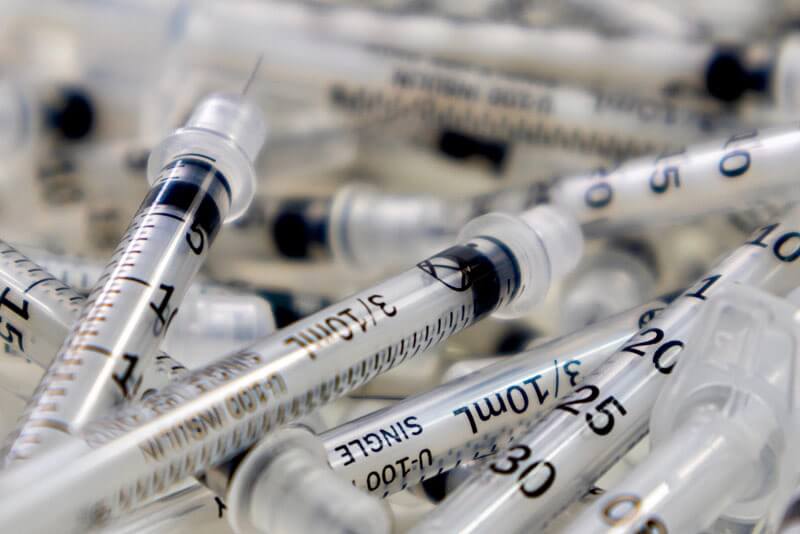
Professional Biohazard Cleaning & Decontamination Services
Not to be confused with everyday domestic and commercial cleaning jobs, biohazard cleaning is a highly specialised field. On a daily basis, biohazard cleaners are exposed to dangerous biohazards and contaminants that can greatly put their health at risk.
To prevent the spread of disease and minimise the risk of cross-contamination, a biohazard cleaner must undergo specialised training and gain on-the-job experience in how to safely and effectively clean up biohazards.
So what exactly is involved in a biohazard cleaning and decontamination service? Read on to find out.
What Is A Biohazard?
A biological hazard (commonly known as a biohazard) is a biological substance that poses a threat to the health of living organisms. When dealing with biohazards, specialist cleaners must carefully identify, decontaminate and dispose of any biohazards to restore a property to a habitable state.
Examples Of Biohazards
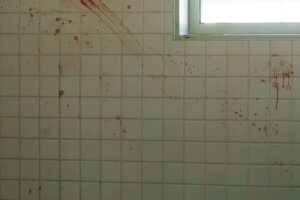
Biohazards can come in a variety of forms e.g. solids, liquids and sharps. Common types of biohazard waste cleaned by biohazard cleaners include:
- Human and animal blood and blood products – in either liquid or semi-liquid form including serum, plasma, other blood components and items contaminated with blood.
- Pathological waste – including tissues, organs, body parts, animal carcasses.
- Bodily fluids – liquids that come from inside human bodies including vomit, urine, mucus, faeces and saliva.
- Sewage spills – the leaking or overflow from a sewer line or wastewater treatment plant.
- Sharps – including needles, syringes and other sharp medical instruments.
- Meth labs – chemical residue left behind from former methamphetamine labs.
As well as the above, any medical supplies or equipment that has come into contact with any biohazards will generally be classified as biohazard waste and dealt with in the same way.
The Dangers Of Exposure
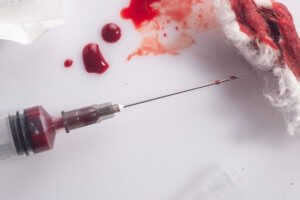
Exposure to biohazards can lead to long-term illnesses and even death so it is important for biohazard cleaners to take adequate safety precautions while undertaking their tasks.
Bodily fluids can transmit all sorts of diseases including:
- Human Immunodeficiency Virus (HIV) – a contagious virus that attacks cells and interferes with the body’s ability to fight infections. If left untreated, HIV can lead to AIDS (Acquired Immunodeficiency Syndrome).
- Hepatitis B – a contagious virus that affects the liver and can lead to liver failure, cancer or scarring.
- Hepatitis C – a contagious virus that causes liver inflammation, leading to serious liver infection.
Other diseases that can be passed on through biohazard exposure include: parasitic infections, meningitis, skin infections, lung infections, candida and bacteremia.
When Am I Likely To Be At Risk?
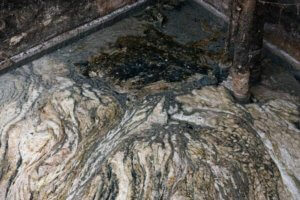
Situations for cleaners when there is a higher risk of exposure to biohazards include:
- At the scene of a crime, accident or suicide where a blood spill has occurred or other pathogens may have been left behind.
- A hoarding/squalor environment where there is filth and debris from hoarding such as faecal matter, bodily fluids, expired food, foul odours, mould, insect infestations and animal remains.
- Squatters or former tenants have left behind drug paraphernalia or the remnants of a former meth lab.
- A sewage system has overflowed and contaminated a property with human waste.
Biohazard Clean Up
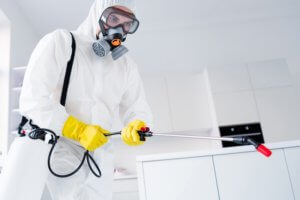
A professional biohazard cleaner will follow strict legal and industry guidelines in order to safely and effectively decontaminate, remediate and restore your property. Though individual circumstances vary and will require specific cleaning methods, a general biohazard clean up will consist of the following steps:
- Biohazard cleaners will promptly attend the property and assess the situation (taking note of what hazardous materials are present as well as the overall size of the area that has been affected).
- The cleaners will secure the affected area and manage the safety of those around the space by using Personal Protective Equipment (PPE) and sectioning off the affected area during the cleaning process.
- The biohazard cleaners will clear up the site using the correct cleaning equipment, chemicals and biohazard material disposal methods. Dangerous biohazards such as blood, bodily fluids and other biohazards will be carefully removed from the area and placed into special spill/leak-proof biohazard containers ready for safe disposal.
- Porous items (including walls, flooring and carpets) that have come into contact with biohazards will be removed from the location ready for incineration. Non-porous items that are salvageable will be sanitised and decontaminated.
- The area will be cleaned, disinfected and deodorised to ensure no harmful biohazards and foul odours remain at the property. Some walls and floors may be repainted.
- The cleaners will conduct a final check to ensure all affected areas have been carefully cleaned and sanitised.
DIY Or Call A Professional?
When in doubt, don’t risk cleaning up a dangerous biohazard site on your own. Cleaning up biohazards without proper training and equipment could potentially expose you to serious diseases that can have long term effects on your health or even cause death.
By hiring a professional biohazard cleaner, you can rest assured that any biohazards will be safely and correctly cleaned or removed and disposed of. Professional biohazard cleaners have the knowledge, experience and correct equipment to safely clean up and contain biohazards to minimise the risk of spreading disease.
Need some help from a professional biohazard cleaner? National Trauma (NTCSC) are Australia’s trusted and experienced biohazard cleaning specialists. For your peace of mind, we’re available 24/7 and ready to assist whenever you need us – any time, day or night.
Call the biohazard cleaners at NTCSC on 0488 007 675 and ask for an obligation-free quote today!

